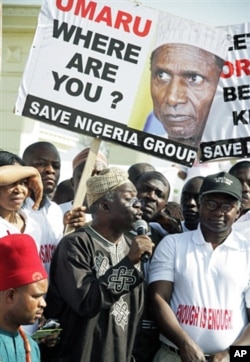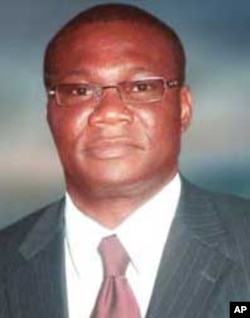In Nigeria, there’s speculation that the gubernatorial elections set for Saturday in Anambra State may be called off. Yesterday, the Federal High Court in Lagos ruled that the Independent Electoral Commission (INEC) is not competent to conduct or organize the poll. The Court says the thirteen-member body lacks 9 members. They can only be named by the president, who is ill. As a result, the Court says INEC lacks a quorum.
Despite the ruling, the National Commissioner in charge of Information and Publicity is quoted in This Day newspaper as saying the commission had not been officially contacted by the court, and can not react to the ruling. And, the Resident Electoral Commissioner in Anambra State is quoted as saying the polls would be held on Saturday as scheduled.
Innocent Chukwuma is the executive director of CLEEN Foundation [formerly the Centre for Law Enforcement Education] and former head of the Transitional Monitoring Group that oversaw Nigeria’s 2007 poll.
He says it doesn’t matter whether the court has given official notice to the government or to INEC:
“The court order was published in all the papers today, all the national dailies and even the electronic media,” says Chukwuma, “so they are aware of [it]. Serving them directly with a copy [of it] is merely an administrative issue which should not stop them from obeying [the ruling].
Some newspaper columnists say the Anambra elections are a litmus test for the forthcoming national elections in 2011 and a of the government’s commitment to electoral reforms. Nigeria’s last national polls, held in 2007, were marred by violence and by allegations of voting irregularities.
The government’s package of reforms is still being debated by the National Assembly, although the president and his cabinet have decline d to approve one that aimed to make the Independent Electoral Commission more transparent:
”The government refused to go along with the recommendations of the very panel the president constituted that traversed Nigeria canvassing opinion as to how to make elections in Nigerian credible," says Chukwuma. “ After 18 months [it] made a set of recommendations and draft a bill that would have resolved this problem. What did the president do ? He set aside the recommendations …..”
Chukwuma says among them was a proposal to have a national judicial commission – and not the president – designate INEC’s members.
“The feeling is that [Yar ‘Adua] would appoint people beholden to him. By removing that power and investing it in a neutral judicial body, the hope [was] the INEC would be truly independent, “ he says.
But the government disagreed with the move, saying the judicial branch should not interfere with the functions of the executive branch of government.
Chikwuma’s concern, he says, it that it’s a return to “business as usual.”





